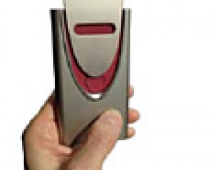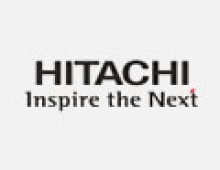
Hitachi, Mitsubishi Electric to combine segments of semiconductor businesse
Hitachi Ltd. and Mitsubishi Electric Corp. will merge key segments of their semiconductor businesses, part of a broader move by Japanese technology companies to combine forces to fight rising development costs and stiff competition, The Wall Street Journal reported.
The two Japanese electronics giants said they are in discussions to fold their so-called systems LSI businesses into a joint venture to be set up in about a year. The venture will operate independently of its parents and will market products under a common name that is yet to be decided, the companies said. Other details of the plan weren't released.
The talks, involving two of Japan 's largest chip makers, advance a trend among Japanese technology companies that are merging their operations to share costs and survive stiff competition at home and abroad. Hitachi, for instance, already has folded its memory-chip business into a venture with NEC Corp. Also, Toshiba Corp. and Matsushita Electric Industrial Co . operate a joint venture in flat- panel screens used in notebook computers.
This time the deal is centered on a product that until now was considered too strategic to share with rivals. Japan 's chip giants have identified system LSIs, or large-scale integrated circuits, as key areas of future growth. While profits have quickly crumbled in commodity products such as memory chips, the chip makers are betting that LSIs will hold up better.
System LSIs combine, on one piece of silicon, functions that usually reside on separate chips. They can be smaller and offer higher performance than using separate chips and can offer better profit margins than many other chips. The chip behind Sony's PlayStation 2 game console is a system LSI, and integrates graphics processors and memory, among other functions.
The planned venture by Hitachi and Mitsubishi shows that LSI hasn't lived up to expectations. In the mid-1990s, nearly all of Japan 's big chip makers jumped into LSIs only to find that demand for the product came mostly from lower-cost consumer goods like DVD players, which offer the chip makers little profit. High-profit generators like the PlayStation 2 are few.
The pairing will encompass a significant portion of the two companies' chip businesses. Of Hitachi's expected 510 billion yen ($3.95 billion) in sales for its semiconductor business in the year ending March 31 , about 56% will flow from LSI products. The LSI business will make up about 60% of Mitsubishi's semiconductor-division sales of 440 billion yen in the same period.
The talks, involving two of Japan 's largest chip makers, advance a trend among Japanese technology companies that are merging their operations to share costs and survive stiff competition at home and abroad. Hitachi, for instance, already has folded its memory-chip business into a venture with NEC Corp. Also, Toshiba Corp. and Matsushita Electric Industrial Co . operate a joint venture in flat- panel screens used in notebook computers.
This time the deal is centered on a product that until now was considered too strategic to share with rivals. Japan 's chip giants have identified system LSIs, or large-scale integrated circuits, as key areas of future growth. While profits have quickly crumbled in commodity products such as memory chips, the chip makers are betting that LSIs will hold up better.
System LSIs combine, on one piece of silicon, functions that usually reside on separate chips. They can be smaller and offer higher performance than using separate chips and can offer better profit margins than many other chips. The chip behind Sony's PlayStation 2 game console is a system LSI, and integrates graphics processors and memory, among other functions.
The planned venture by Hitachi and Mitsubishi shows that LSI hasn't lived up to expectations. In the mid-1990s, nearly all of Japan 's big chip makers jumped into LSIs only to find that demand for the product came mostly from lower-cost consumer goods like DVD players, which offer the chip makers little profit. High-profit generators like the PlayStation 2 are few.
The pairing will encompass a significant portion of the two companies' chip businesses. Of Hitachi's expected 510 billion yen ($3.95 billion) in sales for its semiconductor business in the year ending March 31 , about 56% will flow from LSI products. The LSI business will make up about 60% of Mitsubishi's semiconductor-division sales of 440 billion yen in the same period.





















